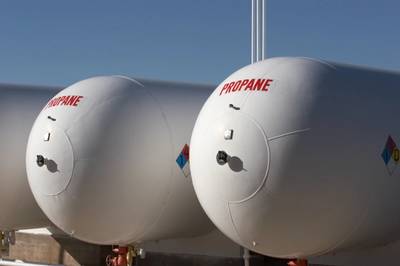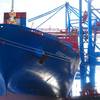Propane Poised to Help Reduce Port Emissions
A new $1.2 trillion law to improve America’s infrastructure creates an unprecedented opportunity for propane and other low-emission fuels to power on-road and off-road fleets that have historically operated on diesel and gasoline.
The Infrastructure Investment and Jobs Act provides over $9 billion in funding for refueling infrastructure and clean vehicles and equipment, including $5 billion earmarked for ports.
Propane is recognized in the Act as an emerging alternative energy source, and propane-powered vehicles and refueling infrastructure are eligible to compete for funding opportunities under the new law, including $2.5 billion in grants for emissions reduction at port facilities as well as $2.5 billion in grants for charging and refueling infrastructure. Funding is expected to become available in January 2022.
“Reducing pollutants caused by diesel engines is a significant concern for ports and near-port communities, and the inclusion of propane in this new law is a major win for these communities,” said Tucker Perkins, president and CEO of the Propane Education & Research Council (PERC), a nonprofit providing propane safety and training programs and investing in research and development of new propane-powered technologies. “With propane, ports can accelerate decarbonization and support healthier air quality quickly and affordably.”
Propane offers significant benefits in a number of product categories, according to the PERC, which is operated and funded by the propane industry.
Propane helps improve air quality at our nation’s ports while reliably supporting global trade logistics. It fuels resilient, low-NOx generators for backup and prime power for cold ironing, charging and other large industrial applications. Propane-powered port tractors produce fewer emissions and cost approximately $200,000 less than electric models, meaning ports can afford to replace more of their fleet and achieve carbon reduction goals faster. Other propane-fueled port equipment includes reach stackers, empty container handlers, and rubber-tired gantry cranes.
In addition, propane refueling infrastructure is affordable, scalable, and readily available for the nation’s alternative fuel corridors. Propane-fueled generators even provide for EV recharging.
PERC claims propane’s simple, affordable, ready-now equipment ensures energy equity by cutting carbon emissions without the trillions of dollars that will be required to modernize an aging electrical grid and retrofit millions of homes and businesses.












